 Petzlover
Petzlover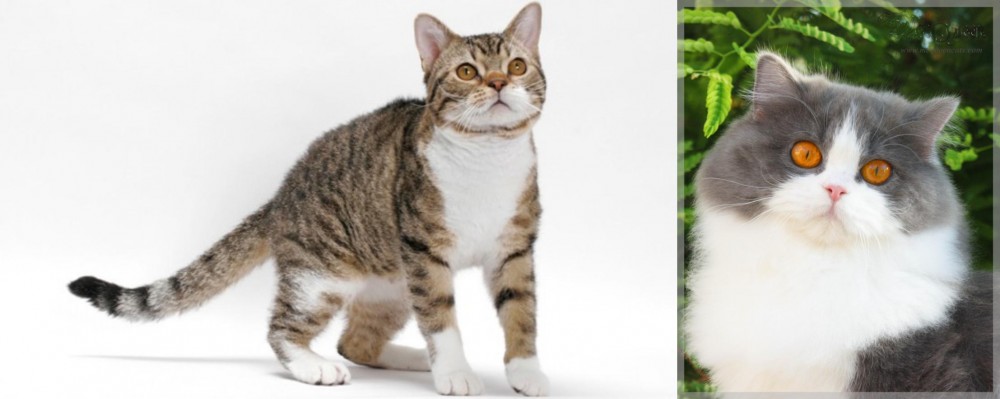 American Wirehair is originated from United States but British Longhair is originated from United Kingdom. Both American Wirehair and British Longhair are having almost same weight. Both American Wirehair and British Longhair has almost same life span. Both American Wirehair and British Longhair has same litter size. American Wirehair requires Low Maintenance. But British Longhair requires Moderate Maintenance
American Wirehair is originated from United States but British Longhair is originated from United Kingdom. Both American Wirehair and British Longhair are having almost same weight. Both American Wirehair and British Longhair has almost same life span. Both American Wirehair and British Longhair has same litter size. American Wirehair requires Low Maintenance. But British Longhair requires Moderate Maintenance
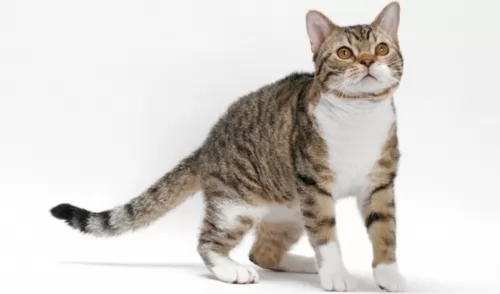 The American Wirehair started as a spontaneous mutation so that somewhere along the line, an unusual litter with this unique wiry type of fur was born.
The American Wirehair started as a spontaneous mutation so that somewhere along the line, an unusual litter with this unique wiry type of fur was born.
The cat hails from New York and it was in 1966 that a couple of barn cats had a litter of kittens, some of which were born with this peculiar wiry hair. Only one kitten survived – a male – and later it was discovered that the gene responsible for the wirehair coat was dominant so that only one parent required the gene to produce Wirehair offspring.
Today, all American Wirehairs are descendants of this one surviving male kitten. Today the breed is still fairly rare. It is, however, recognized by the four largest North American cat associations.
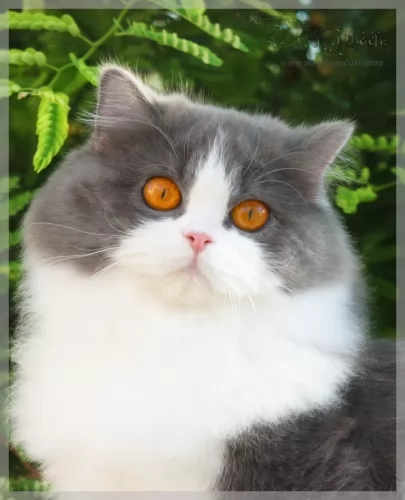 The British Longhair cat hails from Great Britain. The cat is a longer-haired variety of the British Shorthair.
The British Longhair cat hails from Great Britain. The cat is a longer-haired variety of the British Shorthair.
These British Shorthairs were interbred with imported long-haired varieties with the idea being to bring about a cat that was more compact and stout and with a rounder face. Today the British Longhair is an established longhair breed in its own right.
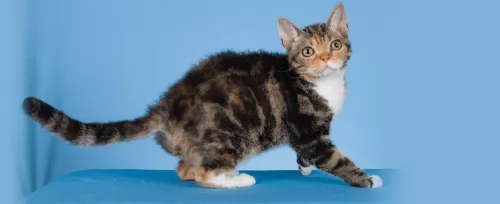 The American Wirehair is a medium-sized cat, strong and powerful, and can weight 5, 6 or 7 kg.
The American Wirehair is a medium-sized cat, strong and powerful, and can weight 5, 6 or 7 kg.
The head is in proportion to the body and the cat has a strong muzzle and chin. The ears are medium-sized and are rounded at the tips while the eyes are large, round, and set well apart.
It’s the coat that draws attention as unlike a regular cat’s silky fur, the fur of this cat is springy, coarse and wiry to the touch. The coat can be any color or pattern. It is the cat’s very coat that distinguishes it from all other breeds.
With this coat, the less grooming the better. Brushing or combing can damage it, so unless he is shedding heavily, leave it alone.
The only other care he needs really is nail trimming, to check inside his mouth for bad teeth and to also check inside his ears for redness. Both the teeth and the ears can be a source of pain for your pet.
The American Wirehair may have a harsh coat but there is nothing harsh about his personality at all. He is amicable and loving, getting on well with all members of his human family.
He is an independent cat and while he loves spending time with his family, he is quite capable of spending time on his own as well.
The American Wirehair is a playful cat so you want to give him some toys to entertain himself for when you’re not around.
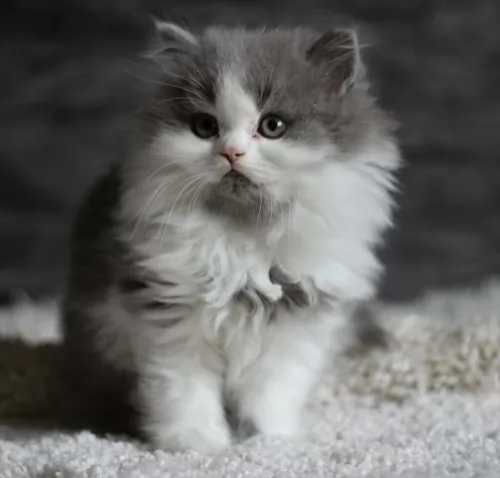 The beautiful British Longhair cat is a medium-sized feline, leaning towards being a large cat with semi-long hair.
The beautiful British Longhair cat is a medium-sized feline, leaning towards being a large cat with semi-long hair.
The cat, whether males or females can weigh between 4 and 8kg. It is robust and muscular with round paws and legs of medium length. The ears are smallish and round at the tips.
The color of the eyes can be different - browns, greens, blue, and grey. The colors of the coat can be blue, white, black, grey, calico, tabby, bi-color and tortoiseshell. The coat can be a solid color or it can be in different patterns. The fur is always medium length and silky with an undercoat.
The British Longhair has much the same personality as the British Shorthair – being calm, amicable cats who appreciate their human owners.
They’re adaptable cats too and are willing to get along with any other pets in the home as well. They’re playful and affectionate with their owners but don’t particularly like being held for too long.
Even though this is a docile cate, it is intelligent and will require mental stimulation. You’ll need to invest in a few ‘intelligent’ type of toys to keep your cat physically and mentally active. Take a look at the kinds of games where your cat will be required to ‘hunt’ for his food.
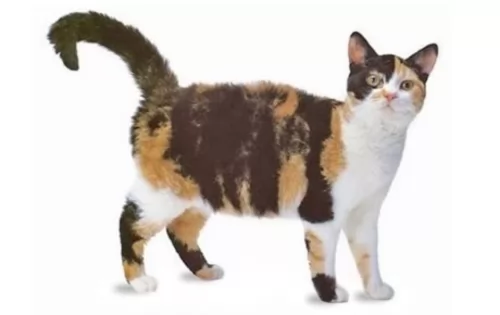 The American Wirehair makes a splendid pet, and while he isn’t the best breed for children, he can make a good pet with those children who have been taught kindness, gentleness and respect for animals.
The American Wirehair makes a splendid pet, and while he isn’t the best breed for children, he can make a good pet with those children who have been taught kindness, gentleness and respect for animals.
He is calm, quiet, dependent, and sociable and by providing him with a good home, he’ll prove to be a wonderful pet and companion.
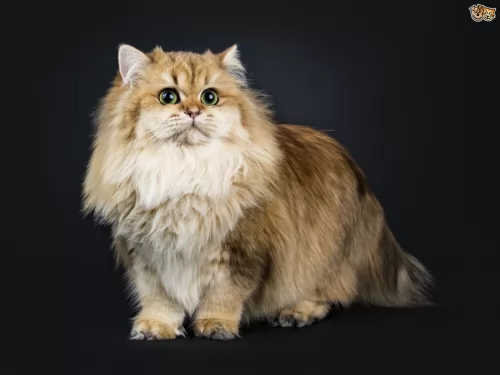 The British Longhair makes an awesome pet and can live happily with children, other dogs, and cats and all of his human family.
The British Longhair makes an awesome pet and can live happily with children, other dogs, and cats and all of his human family.
He isn’t a cat that wants to be picked up too often – he is independent but is willing and loving towards his humans.
For the friendship he offers, you’ll want to reward him for the joy he brings by providing well for him.
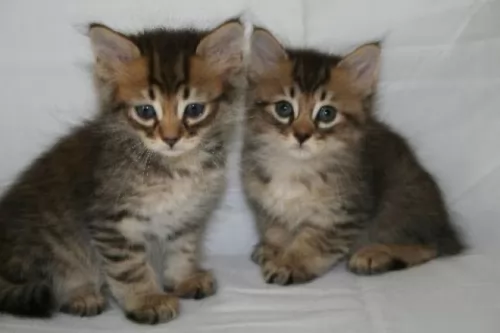 The American Wirehair is a healthy type of cat but any cat can develop health issues.
The American Wirehair is a healthy type of cat but any cat can develop health issues.
Be aware of Hypertrophic cardiomyopathy – a common form of heart disease in cats where there is the thickening of the heart muscle.
Be careful of overfeeding your cat as obesity is a major contributory disease to many illnesses that a cat gets. Excess weight can contribute to diabetes and arthritis and put pressure on your cat’s joints. Certainly, carrying extra weight can shorten your cat’s life. Make sure your cat gets smaller, healthier meals and that he is active and exercised.
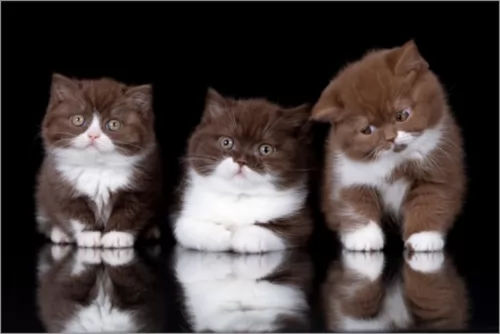 These beautiful cats can be prone to obesity if kept as an indoor cat only and a cat that doesn't get enough exercise.
These beautiful cats can be prone to obesity if kept as an indoor cat only and a cat that doesn't get enough exercise.
Obesity, an accumulation of excess body weight, is a preventable disease. It is necessary to prevent this obesity as it can reduce your pet’s life expectancy. Fat tissue is active, secreting inflammatory hormones and creating oxidative stress on the body’s tissue, and this is precisely what contributes to so many diseases.
The British Longhair cat can also be prone to renal polycystosis. This disease is where many pockets of fluid or cysts form in the kidney and if they grow large over time they can actually interfere with kidney function and this can bring on kidney failure.
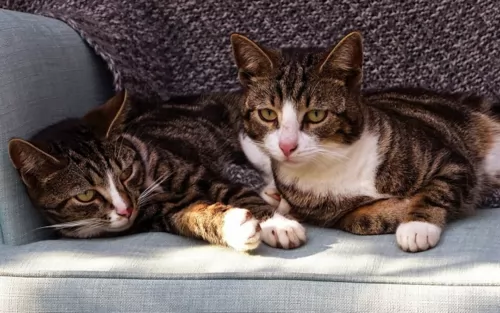 Brush the cat gently once a week. Your cat will love the connection you and he has. While you brush him, make a point of checking inside his ears and inside his mouth as well. It is also time to trim his nails. If you are hesitant to do this, ask you vet for suggestions or you can make use of a pet groomer too.
Brush the cat gently once a week. Your cat will love the connection you and he has. While you brush him, make a point of checking inside his ears and inside his mouth as well. It is also time to trim his nails. If you are hesitant to do this, ask you vet for suggestions or you can make use of a pet groomer too.
Make sure your pet cat is free from parasites such as fleas, ticks and heartworm. Your vet can recommend a treatment and it is also a good idea to talk to your vet about vaccines for your cat.
Have your American Wirehair spayed or neutered to prevent unwanted kittens and to promote better health for your cat.
Always choose healthy food for your pet, bearing in mind that cats are carnivores, which means that you need to choose cat-food for your pet that has fish and meat in it. It can be difficult making good homemade food for your cat but there are excellent commercially prepared cat foods to ensure your cat gets the correct balance of nutrients and calories. Bear in mind that your cat's nutritional requirements change through their different stages of life.
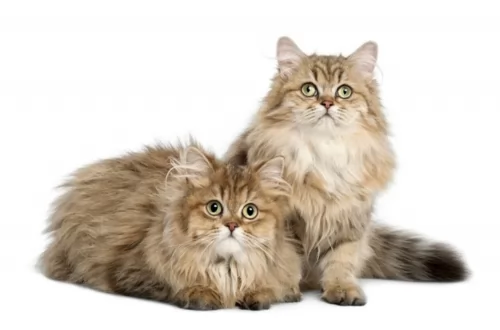 Because of the long hair, the British Longhair is going to require brushing as the coat can easily become matted, particularly as the coat thickens in preparation for winter.
Because of the long hair, the British Longhair is going to require brushing as the coat can easily become matted, particularly as the coat thickens in preparation for winter.
You’ll need to brush the hair once a week, but perhaps more in peak shedding times. A gentle but firm brushing keeps the cat’s fur and skin in good condition.
Have your pet spayed and neutered to avoid unwanted kittens.
Take your pet to the vet as soon as he is unwell. He is part of your family now and must be treated as such.
Provide your pet with human companionship especially if you buy one of the more social cats.
If your cat is an indoor pet, provide him with a litter box ad be prepared to clean it every day.
Provide a clean, dry, comfortable bed in a quiet area.
Provide your cat with stimulating toys.
Vaccinate your cat against the major feline diseases. Also, have your cat dewormed.
In terms of nutritional requirements, make sure that your British Longhair gets the very best cat food there is, whether you provide him with homemade food or you give him some of the excellent commercially manufactured cat foods there are.
There are wet- and dry foods and it's for your furry friend to decide which one he prefers.
Learn to read labels and make sure your cat is getting foods high in protein, after all, your cat is a carnivore.
Be sure that the food has lots of vitamins and minerals for his health. A cat also needs a constant supply of fresh, cool water.